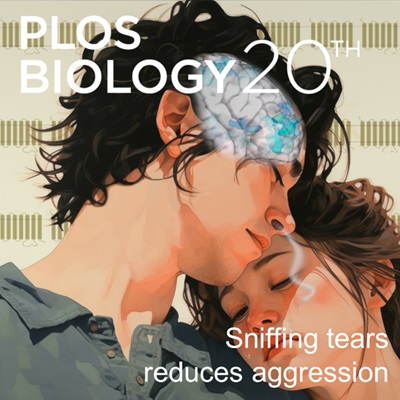神经技术能否彻底改变认知能力的提高?
IF 9.8
1区 生物学
Q1 Agricultural and Biological Sciences
引用次数: 0
摘要
开发和实施用于增强认知能力的神经技术可以引领信息时代的新一轮创新浪潮。然而,我们在此认为,只有从根本上了解人脑功能,才能实现这一目标。本文章由计算机程序翻译,如有差异,请以英文原文为准。
Can neurotechnology revolutionize cognitive enhancement?
The development and implementation of neurotechnology for cognitive enhancement could spearhead a new wave of innovation in the information age. However, we argue here that this will only happen with a more fundamental understanding of human brain function.
求助全文
通过发布文献求助,成功后即可免费获取论文全文。
去求助
来源期刊

PLoS Biology
BIOCHEMISTRY & MOLECULAR BIOLOGY-BIOLOGY
CiteScore
15.40
自引率
2.00%
发文量
359
审稿时长
3-8 weeks
期刊介绍:
PLOS Biology is the flagship journal of the Public Library of Science (PLOS) and focuses on publishing groundbreaking and relevant research in all areas of biological science. The journal features works at various scales, ranging from molecules to ecosystems, and also encourages interdisciplinary studies. PLOS Biology publishes articles that demonstrate exceptional significance, originality, and relevance, with a high standard of scientific rigor in methodology, reporting, and conclusions.
The journal aims to advance science and serve the research community by transforming research communication to align with the research process. It offers evolving article types and policies that empower authors to share the complete story behind their scientific findings with a diverse global audience of researchers, educators, policymakers, patient advocacy groups, and the general public.
PLOS Biology, along with other PLOS journals, is widely indexed by major services such as Crossref, Dimensions, DOAJ, Google Scholar, PubMed, PubMed Central, Scopus, and Web of Science. Additionally, PLOS Biology is indexed by various other services including AGRICOLA, Biological Abstracts, BIOSYS Previews, CABI CAB Abstracts, CABI Global Health, CAPES, CAS, CNKI, Embase, Journal Guide, MEDLINE, and Zoological Record, ensuring that the research content is easily accessible and discoverable by a wide range of audiences.
 求助内容:
求助内容: 应助结果提醒方式:
应助结果提醒方式:


